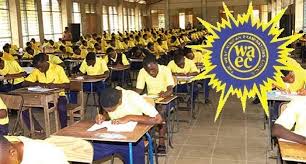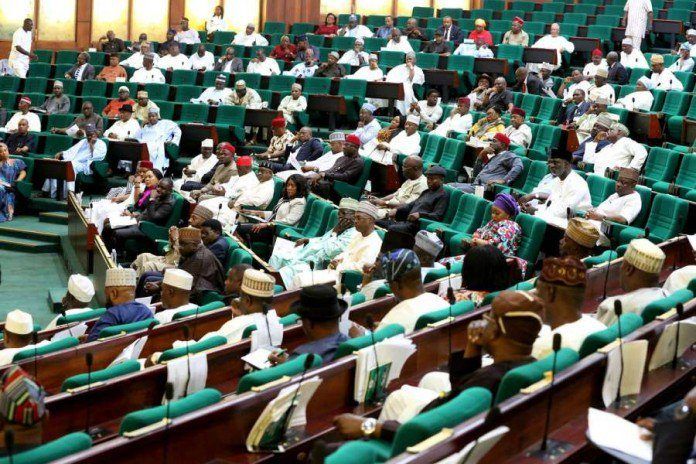ASUU Ignites Fresh Strike Fears, Rejects FG Loan Scheme!

The relationship between the Federal Government of Nigeria and the Academic Staff Union of Universities (ASUU) has reportedly soured, with the union vehemently rejecting the proposed Tertiary Institutions Staff Support Fund (TISSF). Described as a “poisoned chalice,” the TISSF is a loan scheme intended for all staff of tertiary institutions, with academic lecturers expected to lead the way. ASUU, however, insists that its members require improved wages through the renegotiated 2009 ASUU-FGN Agreement, not further indebtedness.
ASUU President Professor Christopher Piwuna, speaking at a press conference in Jos, conveyed the union's frustration, stating they had been “pushed to the wall” after two years of unfulfilled promises. He clarified that ASUU members are already burdened with debt, and this new loan scheme would “incapacitate cooperative societies and enslave our members,” leaving nothing for families after deductions. Piwuna questioned the government's expectation for lecturers to take out loans to cover health expenses and children's education.
The union accused the government of deliberately delaying the renegotiation of the 2009 ASUU-FGN Agreement, failing to address outstanding salary arrears, and neglecting the implementation of measures to revitalize universities. Piwuna asserted that government had “destroyed trust” and must now regain it to avert an impending strike. Furthermore, ASUU expressed concern over the government's inaction on the recommendations of the Alhaji Yayale Ahmed Report, submitted in February 2025, which they believe undermines the principles of collective bargaining, a commitment Nigeria holds as a signatory to the International Labour Organisation (ILO) Convention.
Beyond immediate demands, ASUU also criticized the unchecked proliferation of universities, accusing successive governments of establishing them for political patronage rather than genuine academic pursuits. The union urged an extension of the moratorium on new public universities to private institutions, warning of further erosion of quality and global rankings. ASUU also highlighted the dire situation of retired professors and lecturers under the Contributory Pension Scheme (CPS), many of whom receive as little as ₦150,000 monthly, an amount deemed “cruel and unacceptable” in the current economic climate, especially given the chronic illnesses and dependents many retirees care for.
In response to the government's perceived inaction, ASUU has announced plans to hold rallies across public universities next week. These rallies are intended as a “first shot” at the government. Following a National Executive Council (NEC) meeting at Usmanu Danfodiyo University, Sokoto, on August 16-17, the union issued a statement from President Christopher Piwuna, giving the government until August 28th to address its demands, after which it will decide on further industrial action. While acknowledging a planned government meeting on August 28th, ASUU warned that time was running out, emphasizing that the draft agreement covers crucial issues such as conditions of service, university autonomy, academic freedom, funding, and reviews of laws governing JAMB and NUC.
The union reiterated its long-standing demands: renegotiation of the 2009 Agreement, revitalization of universities, sustainable funding, and an end to the victimisation of its members. ASUU noted that the administration of President Bola Tinubu, initially credited for avoiding nationwide strikes, is now “toeing its predecessor’s ugly path” by stalling renegotiation efforts and failing to address other concerns. This includes the full payment of the remaining three and a half months of salaries withheld in 2022 under the ‘No work, No Pay’ policy during an eight-month strike. ASUU maintains that it has exhausted all amicable means of resolution, and if a strike occurs, the public should hold the Federal Government responsible. Piwuna concluded, “We cannot continue this journey with empty tanks. If the government fails to act, ASUU will have no choice but to embark on action to defend public university education.”
You may also like...
The 1896 Adwa War: How Ethiopia Defied Colonialism

Ethiopia with the exception of Liberia which was used as a settler place for freed slaves remains the only African Count...
Why We Need Sleep: Inside the Brain’s Night Shift

Even when you’re asleep, your brain is quietly up to something, sorting, cleaning, and working behind the scenes.
When Nollywood Meets Netflix: The Creative Tug Between Local Storytelling and Global Algorithms

Nollywood’s partnership with Netflix is rewriting the script for African cinema, offering global reach but raising quest...
Mozambique's LNG Megaproject: A Promise or Peril?

TotalEnergies is leading a consortium in Mozambique as it promises potential restructuring of the nation's energy se...
Aliko Dangote, Africa’s Wealth King: First African-Born Billionaire to Cross $30B

Aliko Dangote, the richest Black man in the world, has reached a new milestone, with a net worth of $30.3 billion, accor...
WAEC Conducts Trial Essay Test Ahead of Full Computer-Based WASSCE in 2026

The trial Computer-Based Test (CBT) for the WAEC essay was held on Thursday, October 23, 2025. The exercise was conducte...
Can Long- Distance Love really work?

Can love really survive when touch becomes a memory and connection lives behind a screen? For many, distance isn’t the ...
Nigeria’s Rental Crisis: House of Representatives Moves to Cap Rent Hikes at 20%

Nigeria's rental market has been under intense pressure, and now lawmakers are stepping in. The House of Rep. has called...

